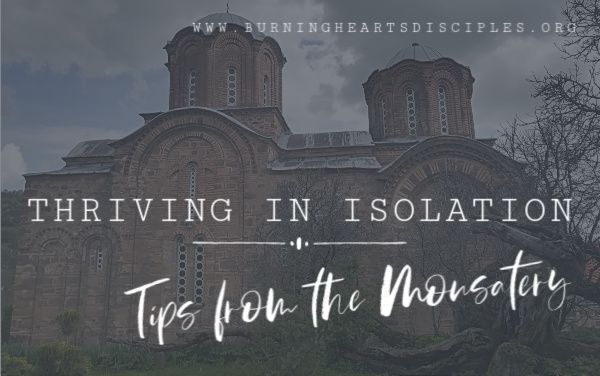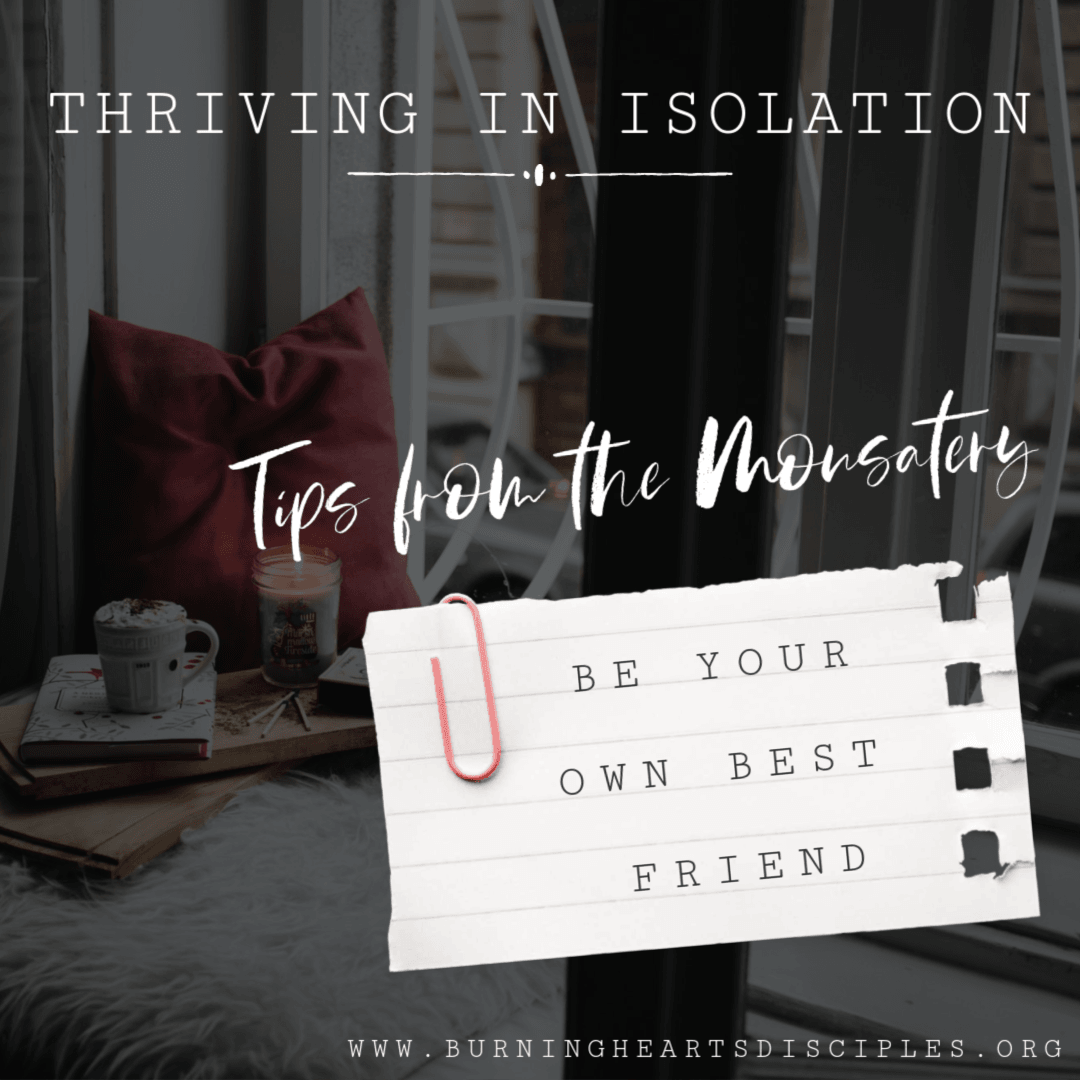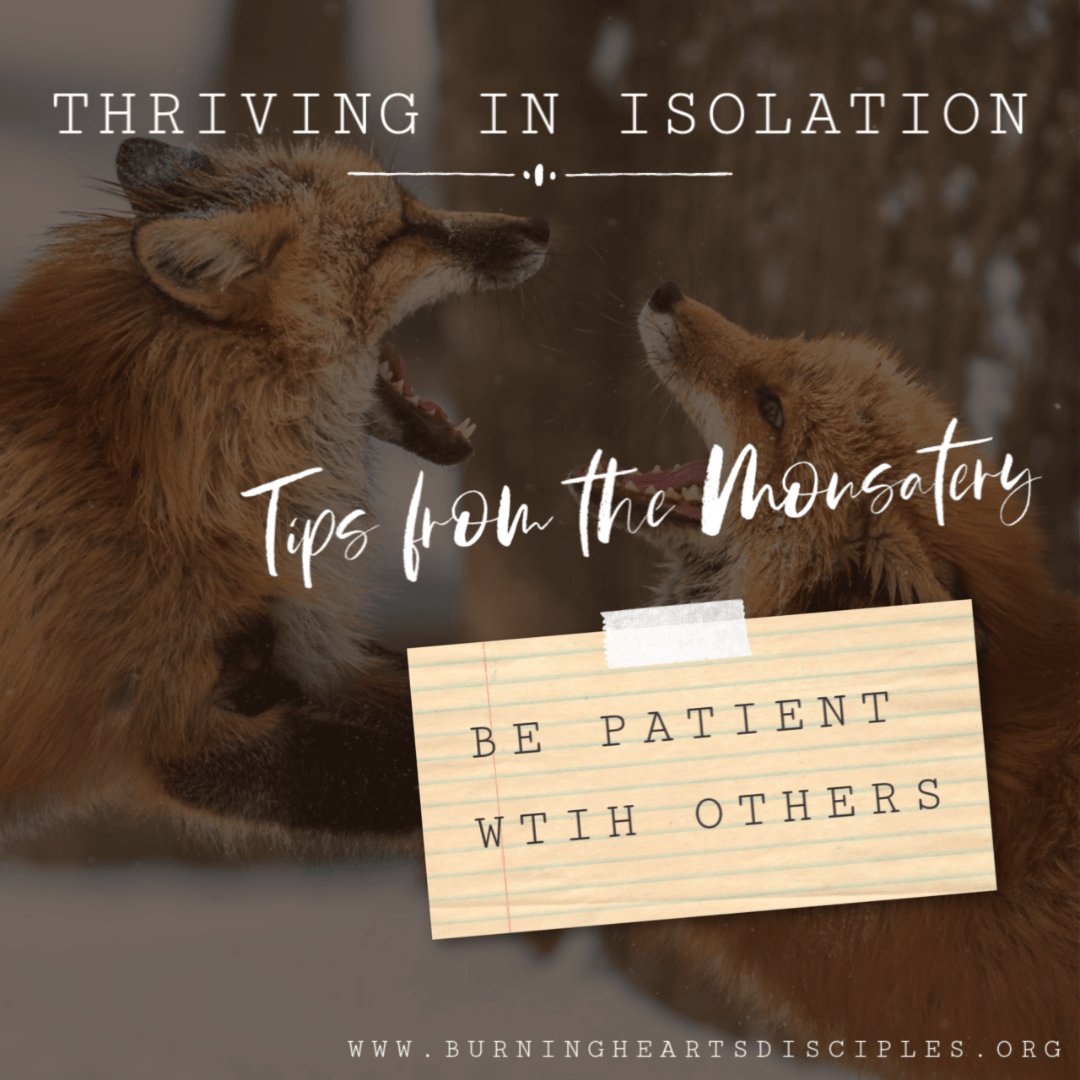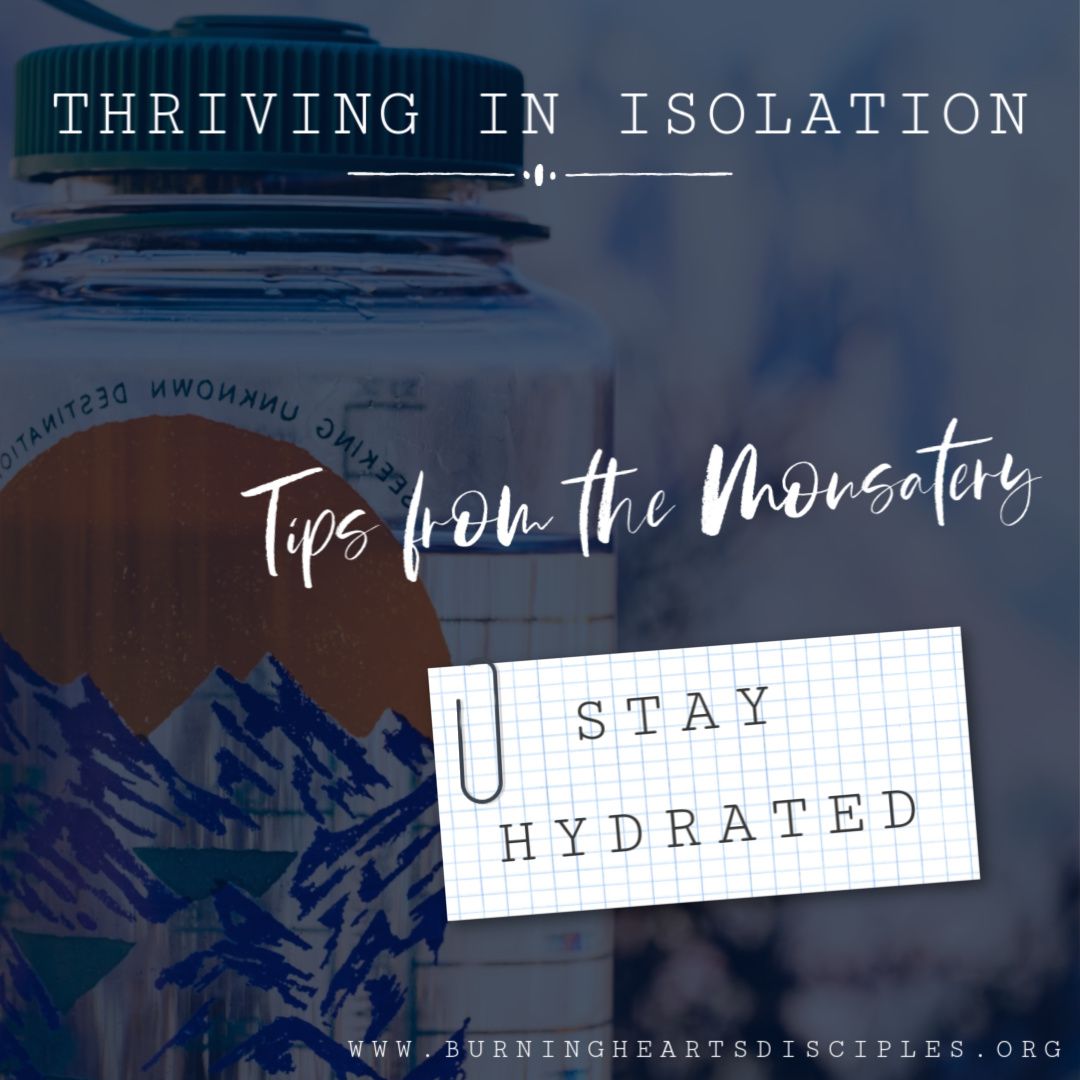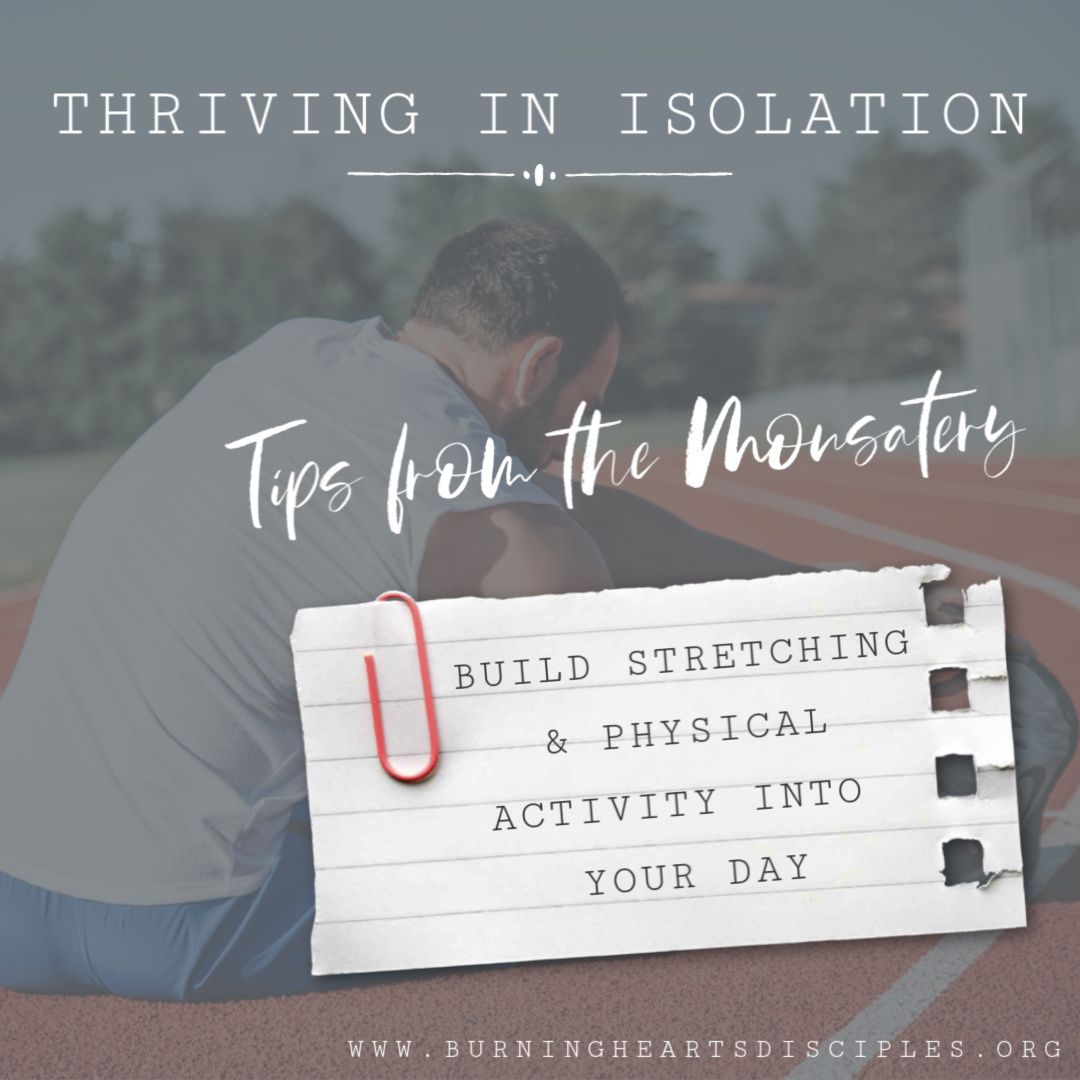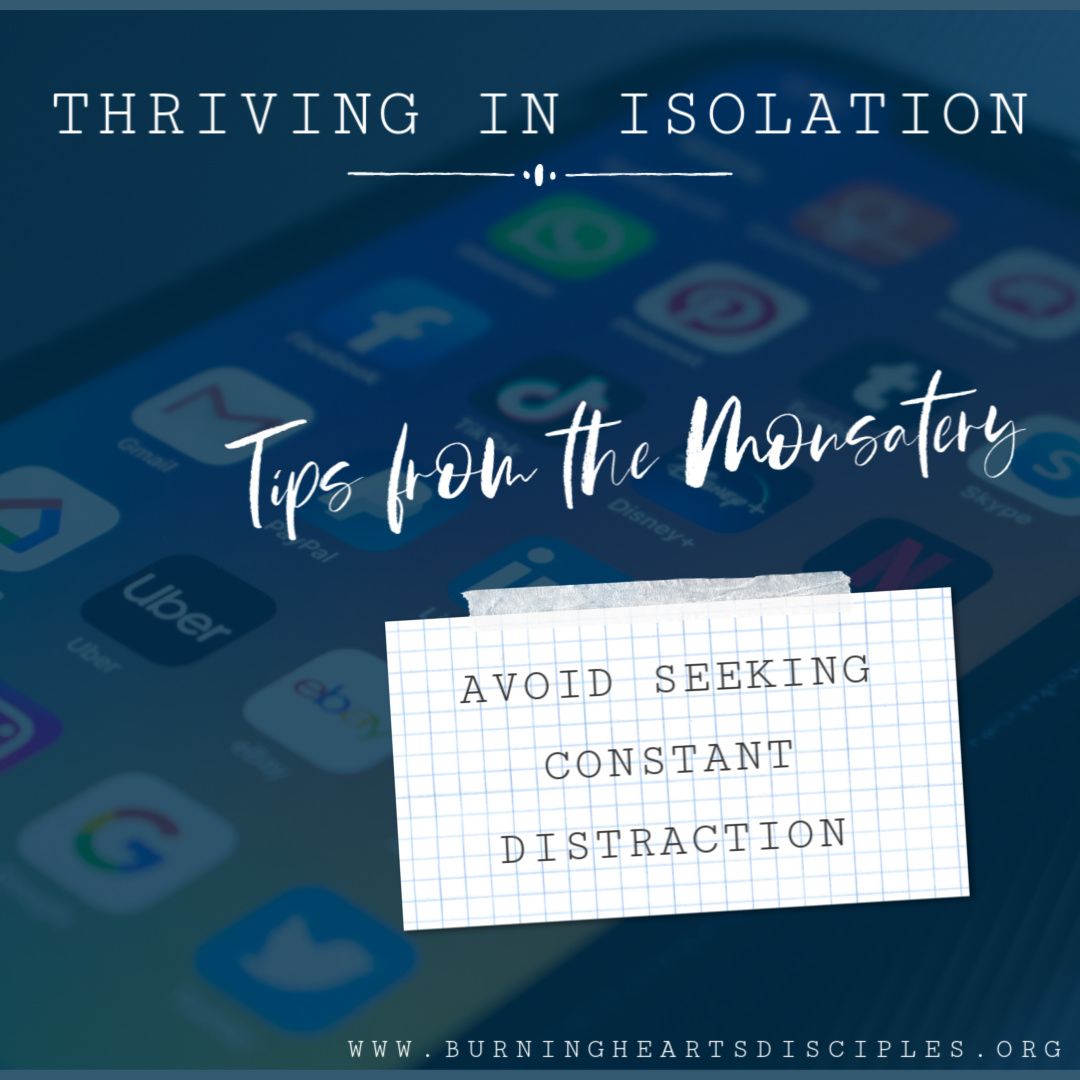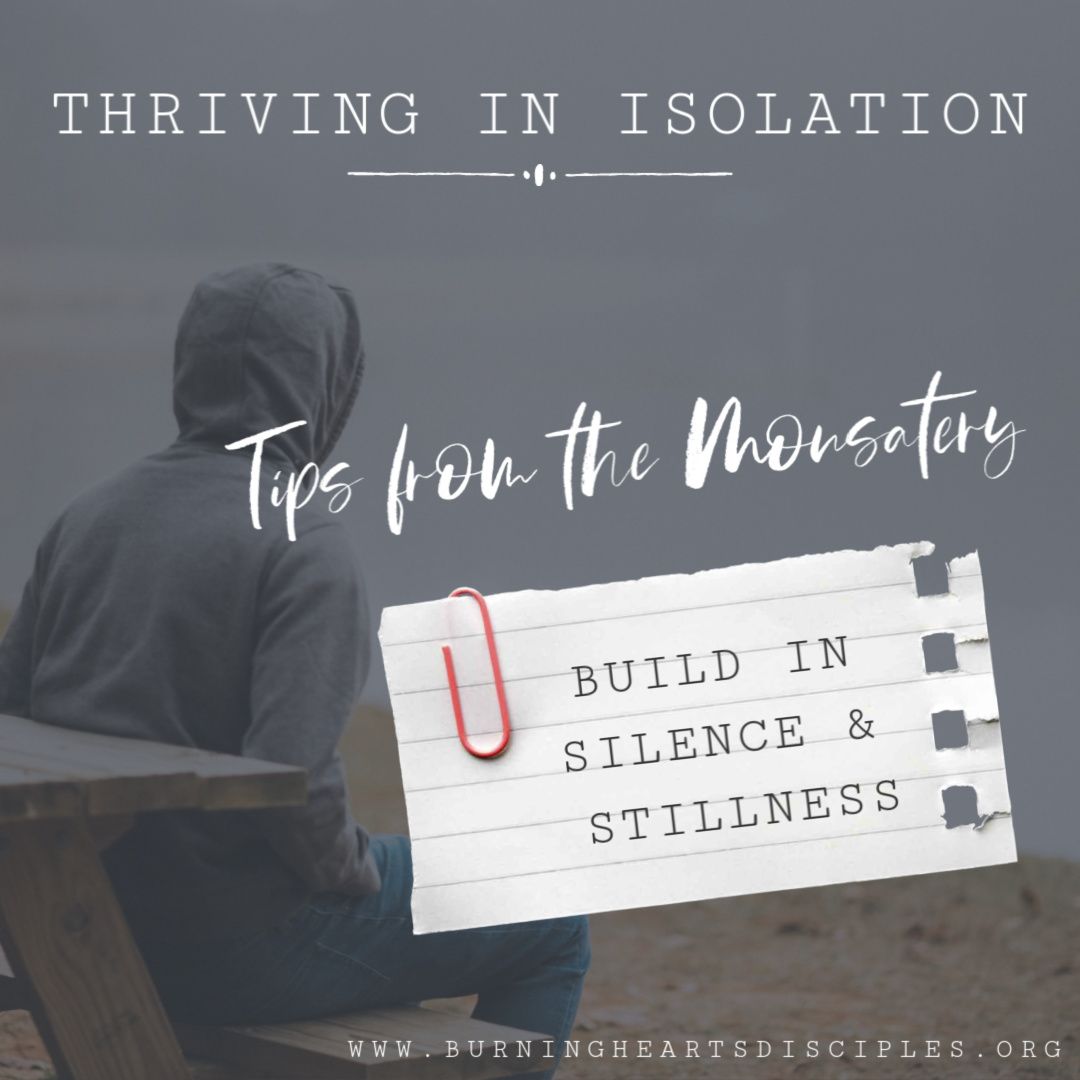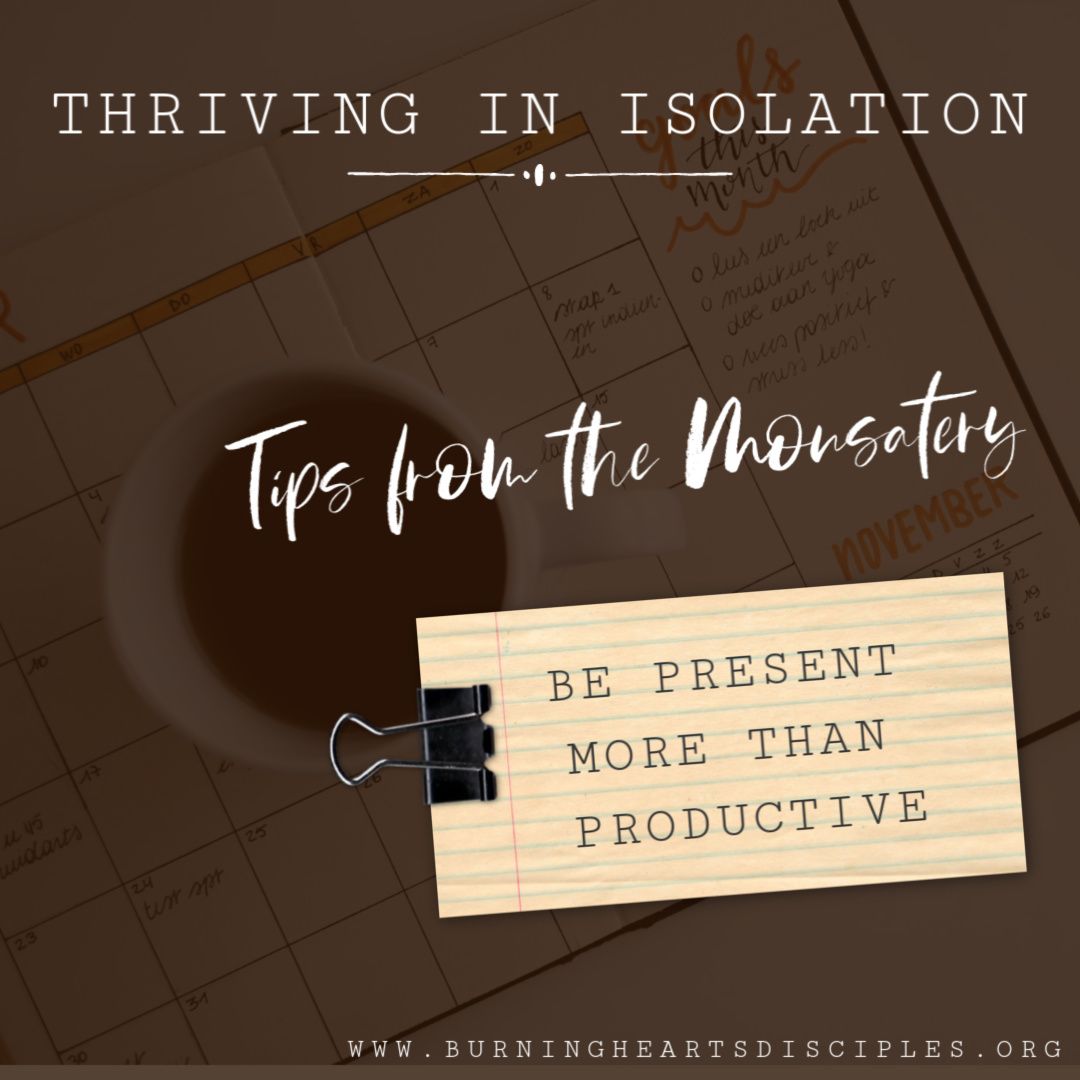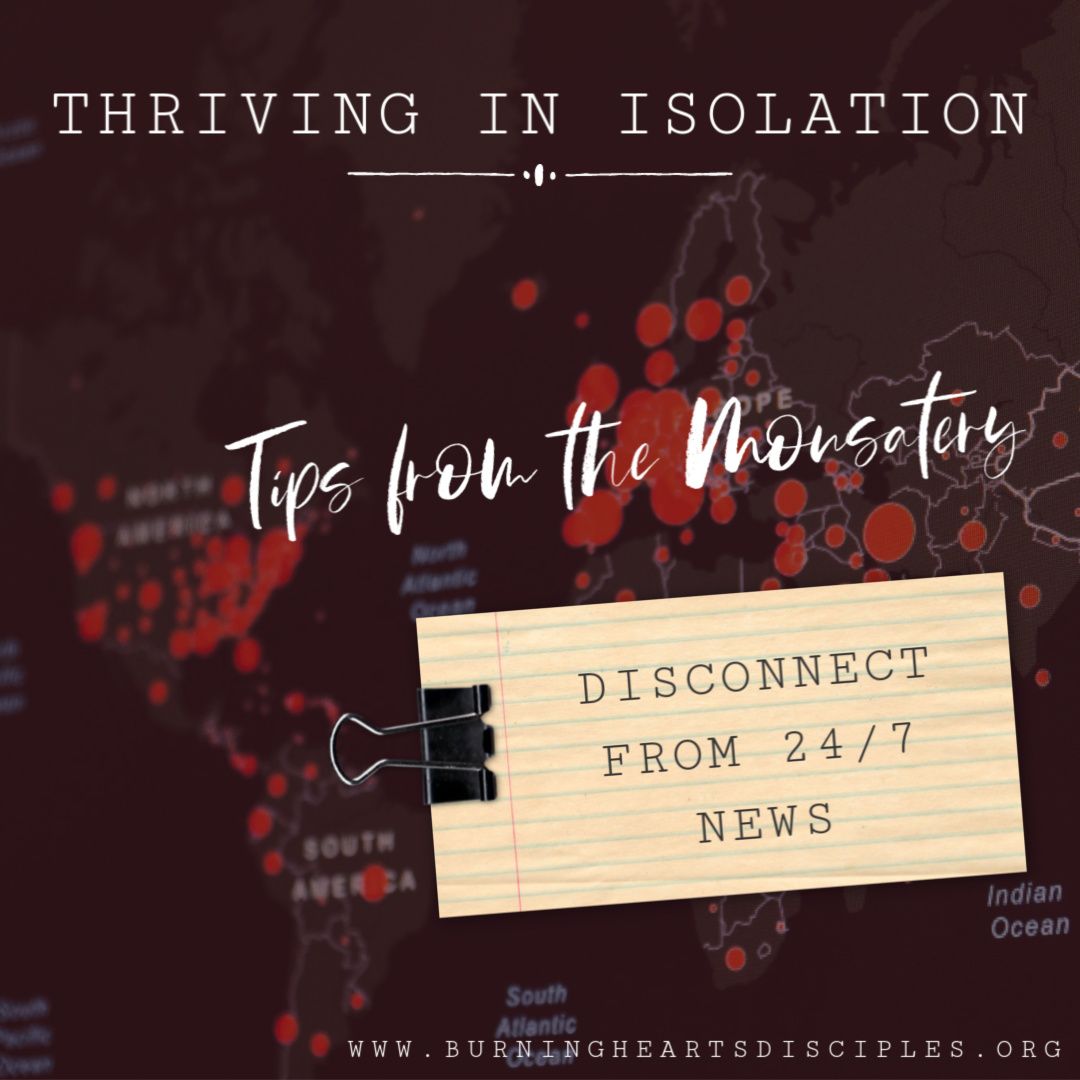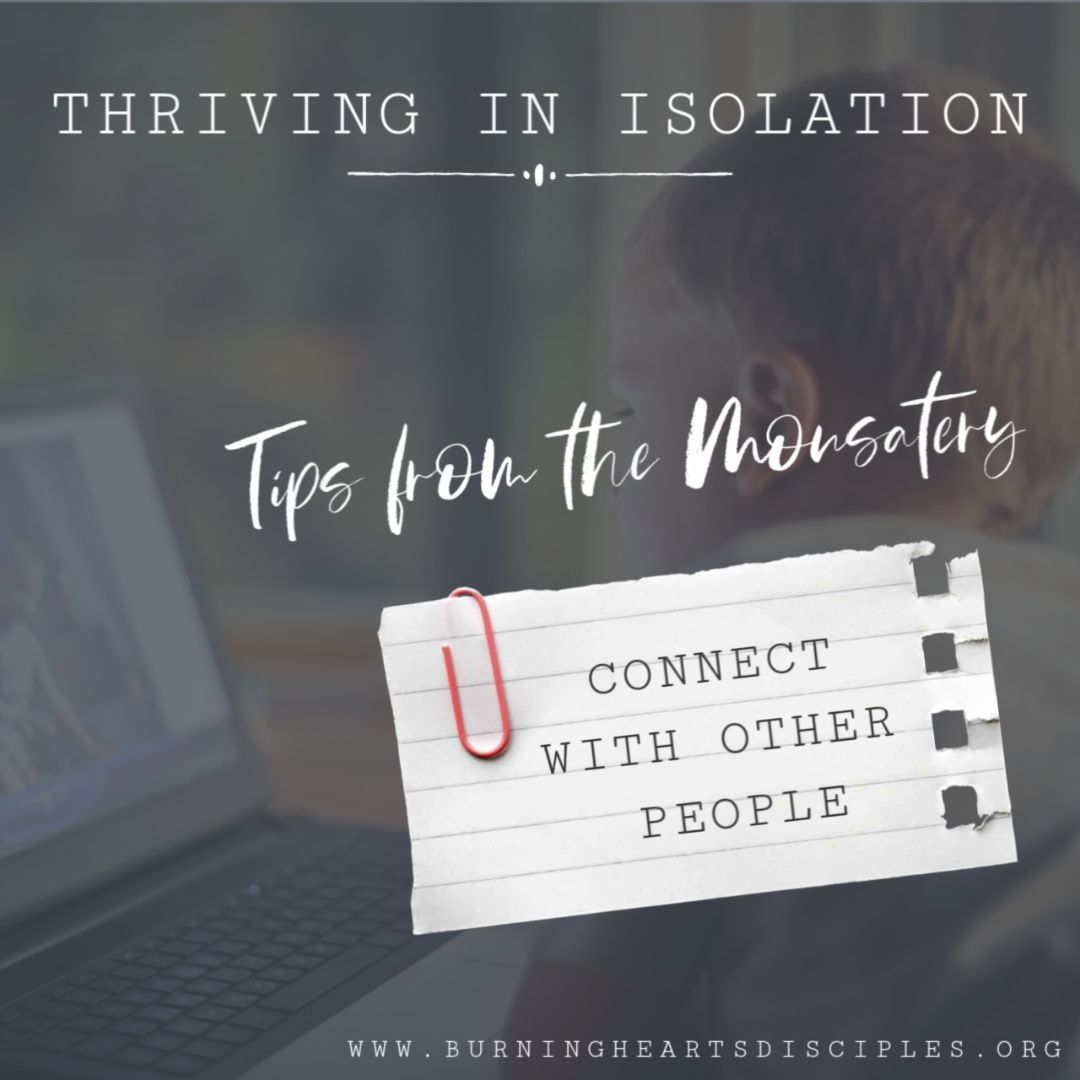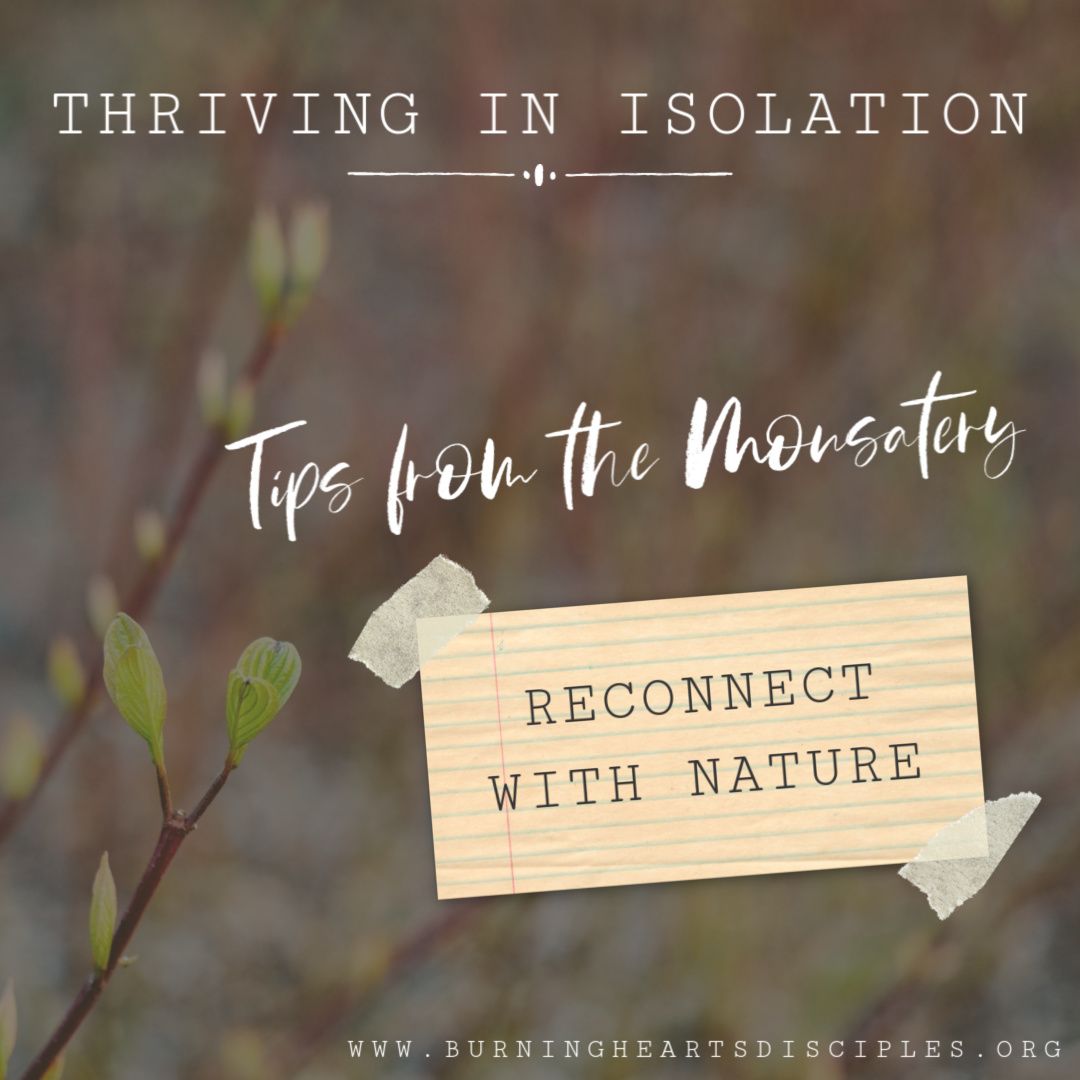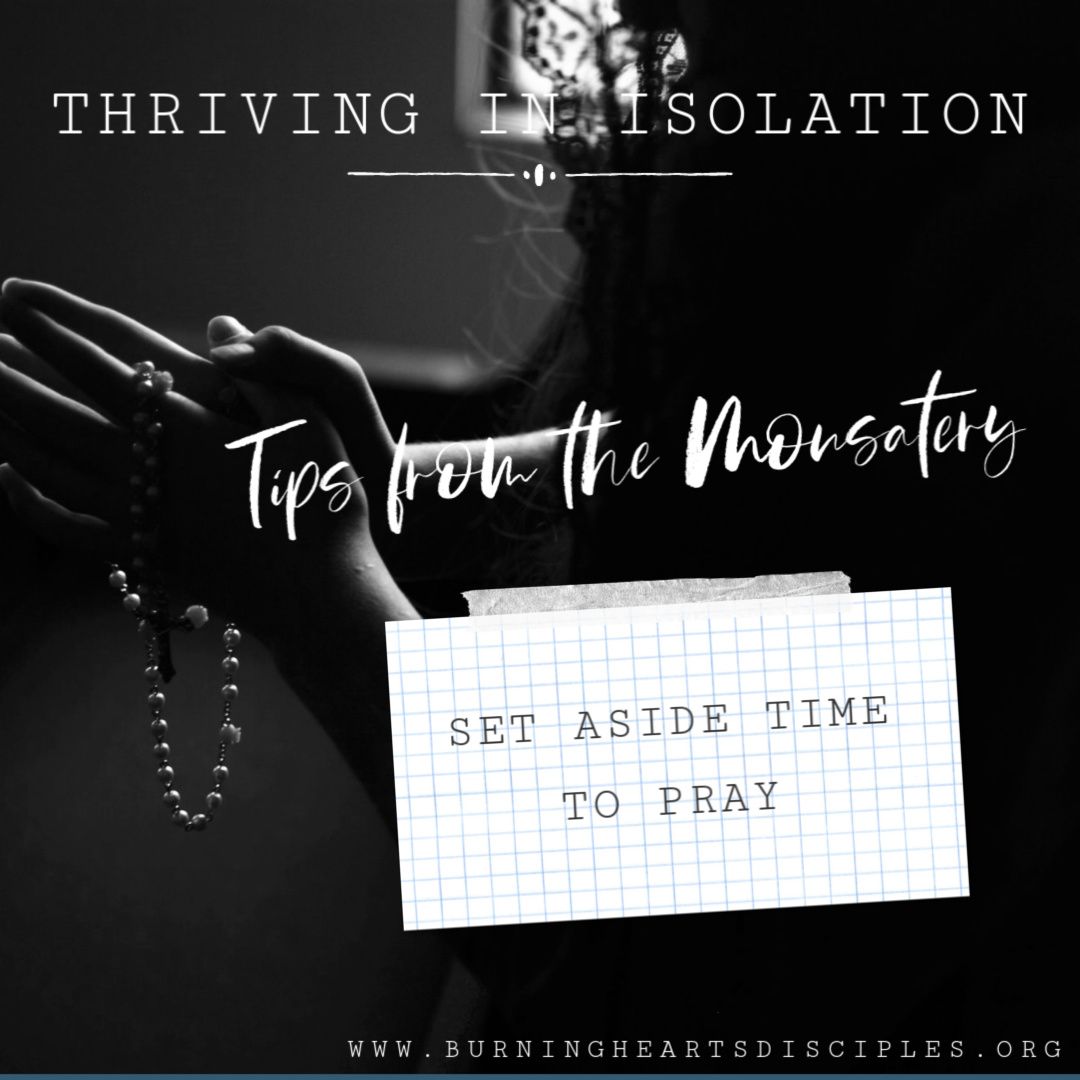What can monastery life can teach us about how to thrive during "social distancing"?
We reached out to some retreat masters, monks, and monasteries of the Catholic tradition for their wisdom on how to handle isolation and social distancing.
These folks - who have intentionally chosen varying levels of isolation and distancing for a variety of reasons - had some incredibly helpful insights for those of us who are struggling with (and didn't choose) this life we're finding ourselves living today.
What to Expect
- Our daily routines prevent us from really experiencing a lot of emotion. Your emotions may go haywire after a couple of days. That's normal. Take time to acknowledge how you feel.
- Our brains aren't used to having a lot of unfocused time. If you can't focus on anything after a day or two, that's normal. Be gentle with yourself and take frequent breaks.
- After a few days of "doing nothing," you're going to be EXHAUSTED. One of two things will likely happen:
- Your body may shut down, and you'll sleep a LOT. Don't worry about this. Do what your body tells you to do.
- Your body may shut down, but circumstances will prevent you from sleeping. You may get crabby and irritable. That's normal.
- Mental health issues that you've managed to ignore may come to the surface. With so much unstructured time, we have ample opportunity to focus on our personal failures or get caught up in guilt or self-pity. You may feel like you are going through an emotional washing machine. That's normal.
Remember: Peace, trust, hope, and humor—especially humor—are signs of God's presence; feelings of unworthiness or shame are dead ends. A good spiritual director can help you distinguish what comes from God and what is a distraction from His presence. If you do not have a good spiritual director, now is a great time to find one.

We love this set of "Questions to Ask Before Giving Up." It's like an instruction manual for your mental and emotional health, shrunk and made nearly indestructible so you can take it with you everywhere! We found these so helpful in our family that we helped create this set for kids too.
Practical Tips for Surviving Isolation and Quarantine:
-
BE YOUR OWN BEST FRIEND
Being kind, compassionate, and patient with yourself is a must during any period of change. It can sometimes be easy to have patience with others when they're going through a tough time or major change, but our patience runs thin when our own lives get turned upside down. Learn to listen for the impatient and critical voice in your own head. When that harsh, intolerant voice pipes up, try pausing to take a few deep breaths. If that internal voice persists, it can be helpful to tell the voice to "go away." -
BE PATIENT WITH OTHERS
As you spend more time in quiet and self-reflection, you may start to identify things you struggle with, hardships you've experienced, negative aspects of your personality, or places you've failed to love others the way you want to. Forgive yourself for these - and seek forgiveness from others if it's necessary and appropriate. Use the insights you gain about yourself as springboards for greater empathy, understanding, and love for other people. -
STAY HYDRATED
Keep a thermos or water bottle with you and filled. A level of even mild dehydration can affect your mood, make it more difficult to concentrate, and produce a headache. Having your favorite hydrating beverage within reach at all times can help keep you more comfortable. Just be sure to avoid too much caffeine, which can be dehydrating. -
BUILD STRETCHING & PHYSICAL ACTIVITY INTO YOUR DAY
Regardless of how active (or not) you were before, it's likely you're spending a lot more time sitting and lounging. If you had to make a quick shift to working from home, chances are your home set up is not as ergonomic as your body is used to. A few minutes of activity every few hours - especially if you're doing a lot of sitting - can help keep back pain and stiffness at bay. -
AVOID CONSTANT DISTRACTION
It's essential to find a balance between finding ways to pass the time and looking for endless, mindless distractions. One tangible way to do this is to make an effort to stop multi-tasking. Don't have the TV on in the background while you're working. Don't keep multiple Internet tabs open on your computer. Do one thing at a time. -
BUILD IN SILENCE AND STILLNESS
Allow yourself to feel the feelings you've been avoiding. In our Catholic tradition, God often speaks most clearly in the quiet. We are unable to hear God's voice - a voice of peace, hope, and love - if we are busy with things that serve only to distract us or keep us from thinking at all. -
BE PRESENT MORE THAN PRODUCTIVE
Depending on what your work situation and family obligations look like right now, you may find yourself with a kind feeling like time is out of sync. It's okay to use this time to get some things done (spring cleaning, a home improvement project you've been putting off, learning a new skill, etc.), but don't put too much pressure on yourself to be productive or bound to a strict schedule. Be open to whatever presents itself in the moment. -
DISCONNECT FROM 247 NEWS
While it's necessary to stay updated and current on the continually changing regulations and recommendations, make sure you spend some time each day unplugged and disconnected. Schedule activities and moments throughout your day to provide a mandatory release from devices and news sources. In some monasteries, only one person has access to the Internet, and she only updates the community once a day. Other monasteries have access to media only in one specific room. Bedrooms, for example, are a tech-free zone. Consider setting limits around when, where, or who will check in on the latest news and updates. Don't leave it on all the time - and by all means, avoid the comment sections online! -
CONNECT WITH OTHER PEOPLE
Virtual tools are essential for staying connected. However, endlessly scrolling through Facebook, Instagram, or Twitter feeds is a poor substitute for genuine connection. Set a social media limit for yourself, and once that time is up, reach out for human connection in other ways. Make a phone call, join a Zoom or Google Hangout chat, FaceTime a friend, drop off a care package on a neighbor's porch. Consider re-capturing the dying art of writing physical letters. -
RECONNECT WITH NATURE
In monastery life, the cycle and rhythms of nature are the foundation of their schedule and a source of stability. Allow your daily schedule to be dictated by the cycles of the day rather than the time on the clock. Break the cycle of looking at your four walls, the screen, or the people in your home who are making you nuts. Get out and breathe the air. When you feel discouraged, anxious, or irritable, the signs of nature coming back to life that Spring brings can be a great source of hope, comfort, and stability. -
SET ASIDE TIME TO PRAY
Carve out specific time that is free from distractions to focus on your relationship with Jesus. Allow him to walk with you through your doubt, anxieties, and loneliness. Times set aside for prayer and reading Scripture offer you the chance to reset if you're getting irritable or find yourself caught up in the barrage of "bad news" online. Reach out to talk with a trusted faith mentor or spiritual director if you need a spiritual health check-up. Don't know how to pray? We can help.
We'll get through this.
Even if you live alone, you're not alone. If you are struggling, would like someone to pray with you, or need to talk, call your local church. Even if the offices are closed, many have a call forwarding or answering service that can connect you with someone.
Our ministry is also here to serve you. Please feel free to call (920-509-0204), text ( 920-376-5283), or email (This email address is being protected from spambots. You need JavaScript enabled to view it.), and we will get back to you!
Special thanks to Fr. Ryan Hilderbrand, the Carmelite Monastery Chaplain, and the Byzantine Monks who offered their insights and wisdom.


